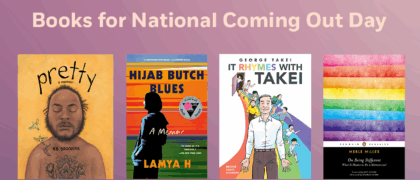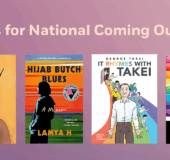Contributed by Jenn M. Jackson, PhD, author of Black Women Taught Us: An Intimate History of Black Feminism and an award-winning professor of political science at Syracuse University.
I’ll never forget the way it felt when I first learned that there was no Black Feminist History course offered at my undergraduate university. This elite institution of higher education had attracted me not only because of its beautiful southern California living and weather but because it boasted a world-renowned faculty and curricula that would prepare me for the broader world. But when I searched for courses that reflected the experiences and identities I held, they were rarely, if ever, offered.
At the time, especially because I was an industrial engineering major with little knowledge of the histories of Women’s and Gender Studies (WGS) and African American Studies (AAS) departments on college campuses around the country, I felt a certain betrayal. I couldn’t understand how this institution could demand so much from people like me yet fail to represent us in the course catalog and faculty hires. It was much later when I learned that these kinds of departments were often underfunded and understaffed by institutions of higher education. Not only that, they frequently had to justify themselves, especially on predominantly white campuses.
So, as I’ve told every student I’ve taught since 2011, I’ve never actually taken a Black Feminist History course. My knowledge of the works and words of my elders and foremothers came from self-study and outside training rooted in a deep personal desire to understand myself and the world better. Black Women Taught Us maps that journey in 368 pages.
One of my primary motivations in writing this book was to reveal a history that has long been watered down, erased from the archives, misremembered, and simply not acknowledged by institutions that matter. Even today, 20 years after I searched my school’s website for a Black Feminist History class, universities remain battlegrounds for the teaching of Critical Race Theory and broader Black Feminist Studies as political ideologies have come to outweigh the pedagogical tenets of the classroom. Black Feminist books cascade down the book ban list and remain censored in libraries and schools, many young people’s first sites of curiosity, exploration, and imagination. In many senses, while young people have immense access to data in this social moment, the political-cultural pressures on institutions and educators have made it harder for them to find clear, accurate, and reliable information.
This, I believe, is one of the primary strengths and opportunities of Black Women Taught Us—it operates as an introduction to Black Feminism through the lens of an educator, organizer, and queer-positioned Black subject. This framing of the topic allows for complex concepts like freedom, self-naming, identity politics, abolition, intersectionality, and allyship to be interrogated in ways that are accessible and authentic. These are not always easy conversations. In fact, discussions about Black women’s political lives in the United States remain some of the most contentious topics in society today. This book is a bridge to have those conversations, honestly, while accepting how it feels to be challenged and made different. In many ways, this book gives readers and students permission to still be learning, because we all are. I consider myself a lifetime student.
I write this book as a person who has dedicated their career to translating complex issues to young people. From my column at Teen Vogue to my teaching in the college classroom, my writing is rooted in extensive research which exposes students and readers to a citational history that can begin a long journey of Black Feminist study. As I write in the book’s conclusion, this book is not meant to be an ending but a beginning. In writing this book, my hope has always been that young people, those searching for reflections of themselves just like I was, will find it. And, once they learn their own history, they will be excited to continue on.
This is the book that will set student’s on a path toward a lifelong study of race, gender, class, sexuality, and disability. It’s a guidebook and a roadmap.
Watch a video message from author Jenn M. Jackson, PhD, to fellow educators:





